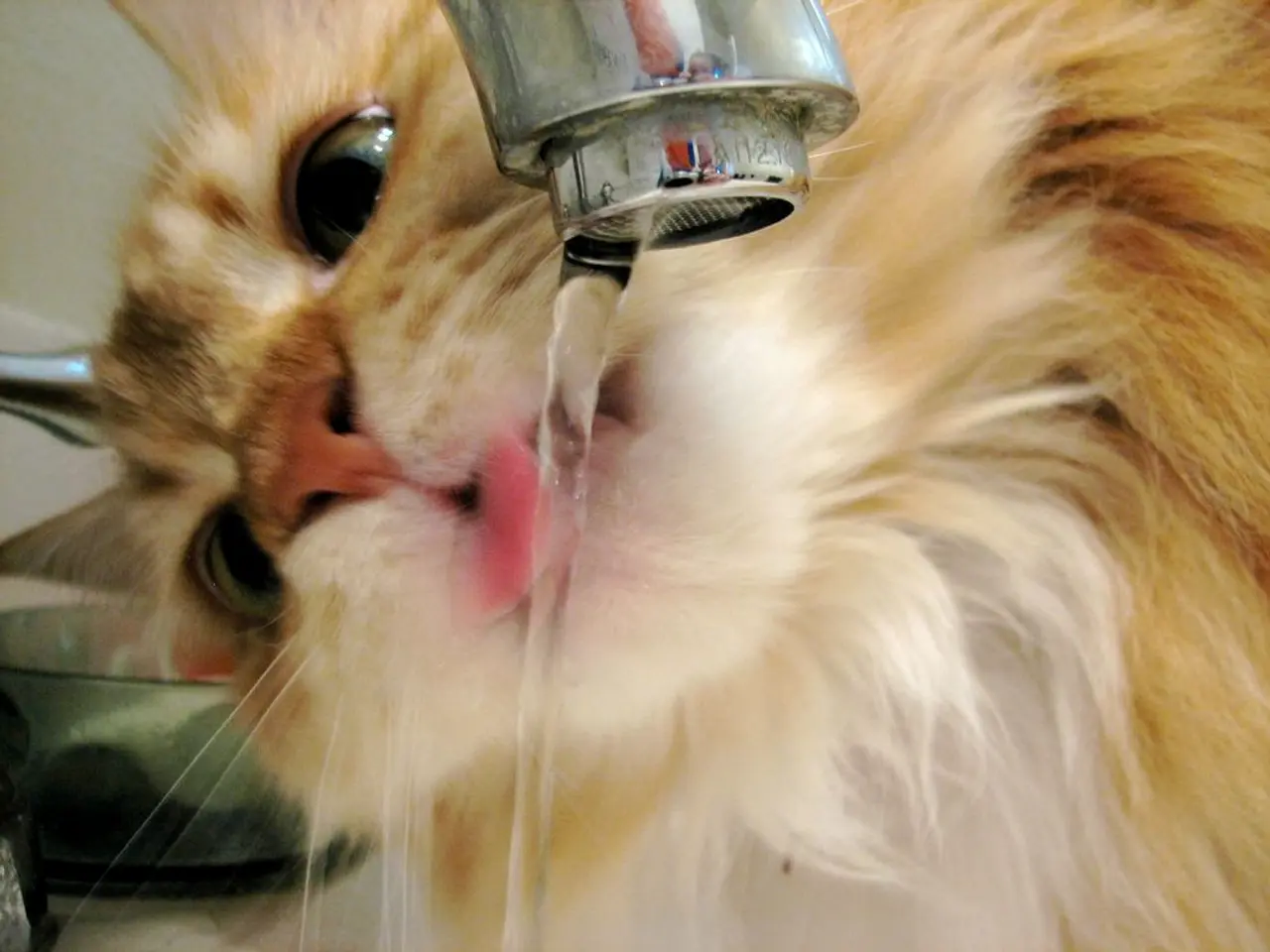Excessive Water Consumption in Cats: Why is Your Feline Companion Drinking More Than Usual?
In the world of feline care, ensuring your cat stays hydrated is as important as providing them with nutritious food and a comfortable environment. The water intake frequency of cats can vary significantly depending on the type of food they consume.
Cats that munch on dry food, which contains minimal moisture (8–10%), require a water intake of between 45 and 55 milliliters per kilogram of body weight per day. This is because they need to compensate for the low moisture content in their food by drinking more water to meet their hydration needs. On the other hand, cats that feast on steamed or meat-based (wet) food, which contains around 80% water, need to drink significantly less as their hydration requirements are largely met by the food itself.
As a responsible cat owner, it's essential to track your cat's daily water intake. This can help you identify any potential issues early on. If you notice your cat showing signs of unusual or persistent thirst, it would be wise to schedule a vet check-up.
It's important to remember that hot weather or increased activity can make a cat drink more, but the amount should still be within a normal range. Early diagnosis of any health issue can help preserve a cat's health and improve the treatment outcome.
Veterinary checks may involve several tests, such as blood tests, urine culture, or a urine sample, to check for potential kidney issues, diabetes, or other concerns. Owners should also note changes in urination habits or behaviour, as well as monitor for additional symptoms like weight loss or decreased appetite.
Litter box habits can offer clues about potential health issues. For instance, frequent urination or urination in unusual places should be discussed with the vet. Measuring a cat's blood pressure and reviewing their diet can help pinpoint the underlying issue.
Conditions like diabetes may require insulin and a controlled feeding schedule, while chronic kidney disease might be managed with a special diet and medications. By staying vigilant and working closely with your vet, you can help your cat maintain optimal health and enjoy a long, happy life.
Read also:
- Peptide YY (PYY): Exploring its Role in Appetite Suppression, Intestinal Health, and Cognitive Links
- Toddler Health: Rotavirus Signs, Origins, and Potential Complications
- Digestive issues and heart discomfort: Root causes and associated health conditions
- House Infernos: Deadly Hazards Surpassing the Flames








